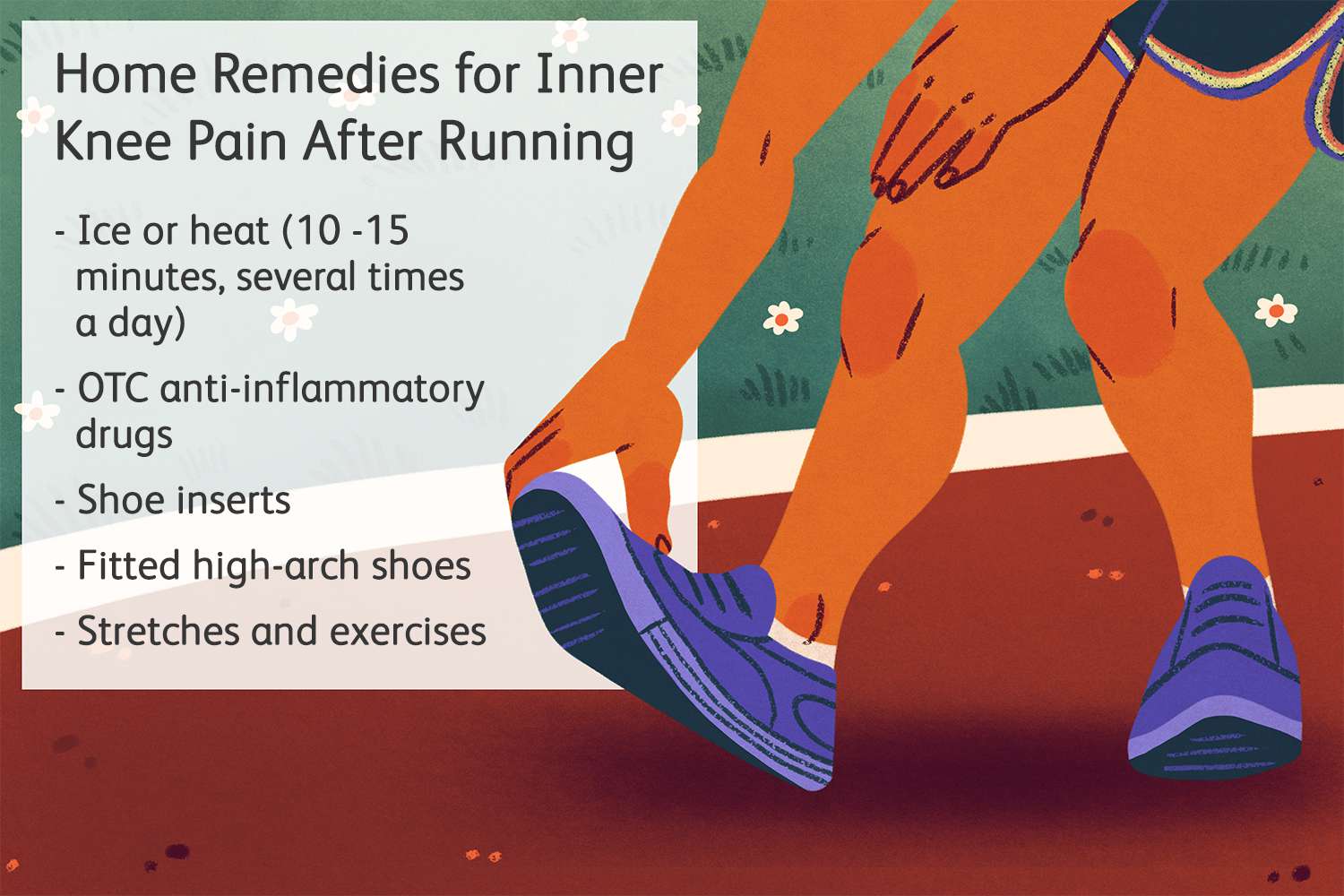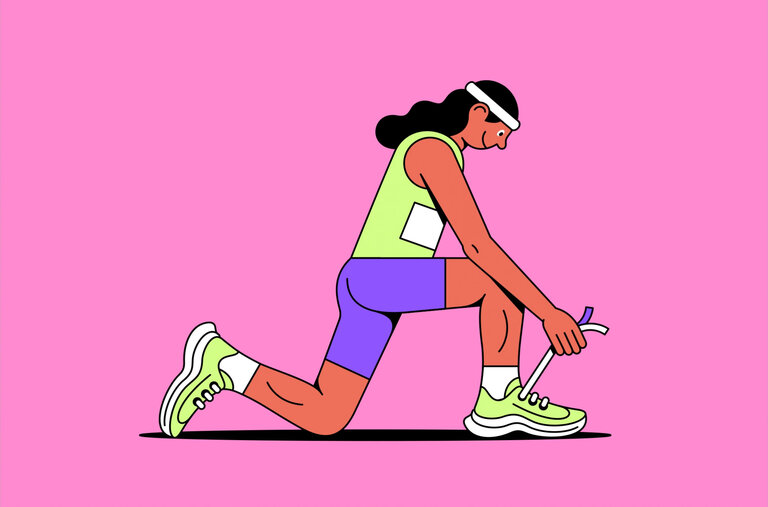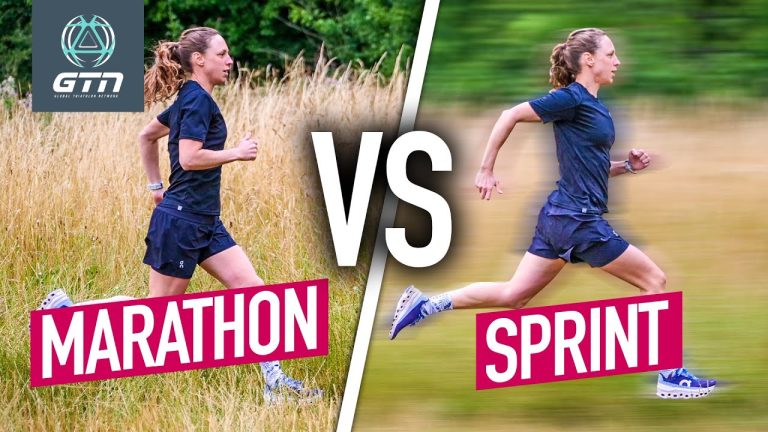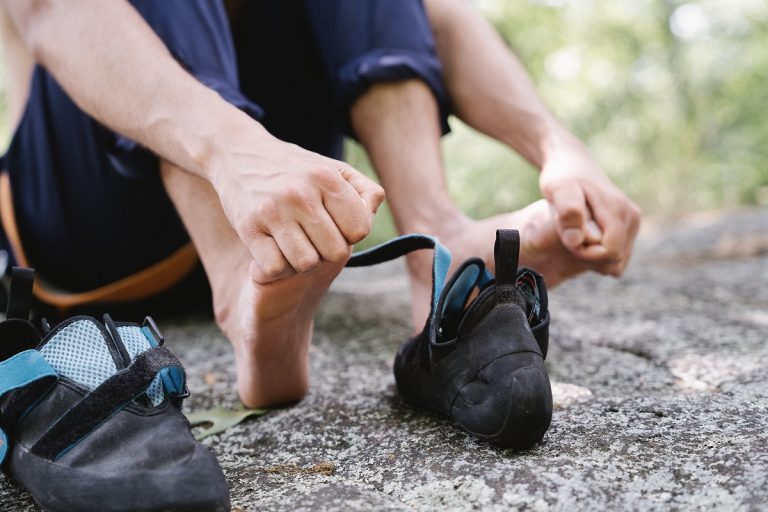Knee Pain After Running: Common Causes And Treatments
Knee pain after running can be caused by overuse, poor form, weak muscles, improper shoes, previous injury, or arthritis. Proper stretching, strengthening exercises, rest, icing, and seeing a healthcare provider can help alleviate knee pain.
Intense physical activity like running can sometimes lead to knee pain, causing discomfort and hindering performance. Understanding the common causes and treatments for knee pain after running is crucial for runners to maintain a healthy exercise routine. By addressing the root of the problem and implementing appropriate strategies, individuals can effectively manage and prevent knee pain.
We will explore seven common causes of knee pain after running and discuss various treatment options to help runners stay injury-free and continue their running regimen pain-free.
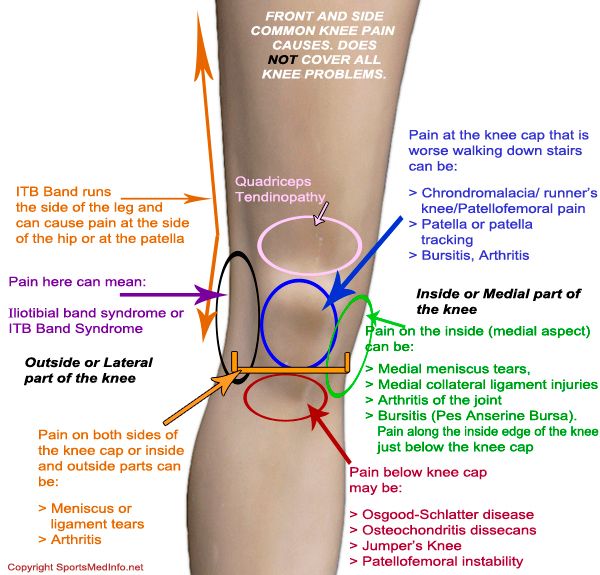
Credit: www.runtothefinish.com
Causes Of Knee Pain After Running
When it comes to knee pain after running, there are several common causes that athletes and runners should be aware of. Understanding the root issues behind knee pain can help individuals take proactive measures to address and prevent these issues, enabling them to continue their running regimen with confidence and comfort.
Improper Running Form
Improper running form is a common cause of knee pain after running. Running with incorrect posture or technique can put excessive strain on the knees, leading to discomfort and potential injuries. For instance, overstriding, landing with a heel strike, or running with a forward lean can all contribute to knee pain.
Overuse And Overtraining
Overuse and overtraining can lead to knee pain after running. Pushing the body beyond its limits without adequate rest and recovery can result in inflammation, strain, and stress on the knee joints. This can occur when runners increase their mileage too rapidly or engage in high-intensity training without allowing sufficient time for the body to adapt.
Weak Muscles And Imbalances
Weak muscles and imbalances in the lower body can also contribute to knee pain after running. When certain muscles, such as the quadriceps, hamstrings, or glutes, are weak or imbalanced, it can affect the stability and alignment of the knee joint, leading to increased pressure and potential pain during running activities.
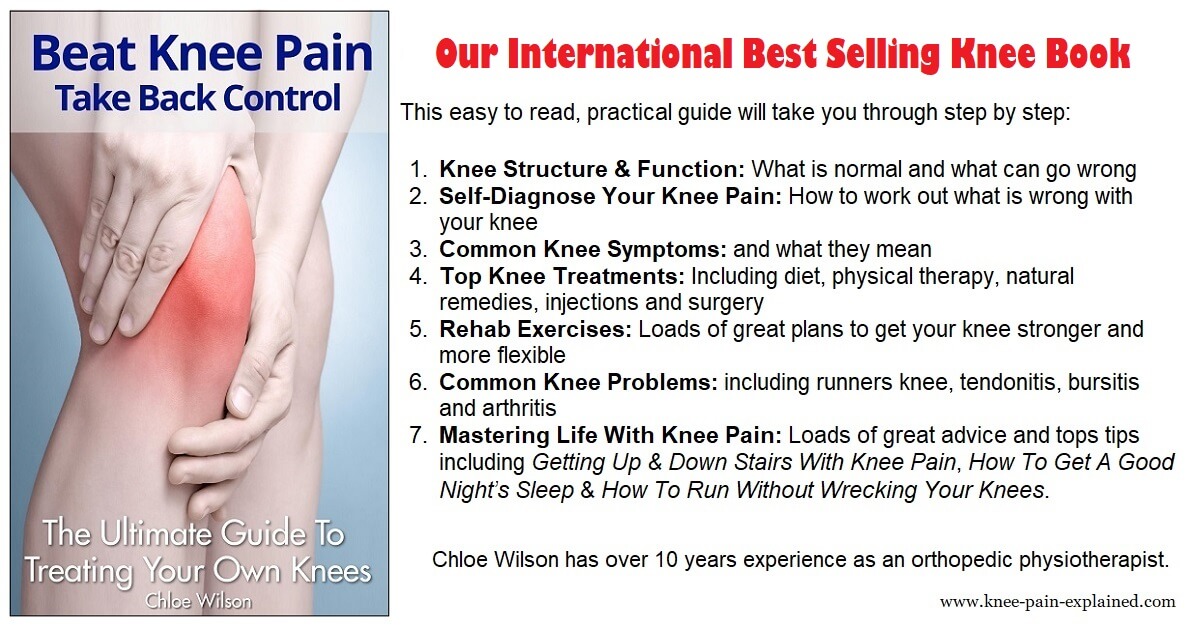
Credit: www.knee-pain-explained.com
Injury Related Causes
Injury Related Causes of knee pain after running can greatly impact your mobility and performance. Identifying and treating these specific issues is crucial for a successful recovery.
Patellofemoral Pain Syndrome
Patellofemoral Pain Syndrome is a common knee injury among runners. It causes pain around the kneecap, especially when running downhill or descending stairs.
Iliotibial (it) Band Syndrome
Iliotibial (IT) Band Syndrome occurs when the IT band becomes inflamed, leading to sharp pain on the outer side of the knee during running.
Meniscus Tears
Meniscus Tears in the knee are prevalent among athletes and can result from sudden twisting movements, causing pain and swelling in the joint.
Medical Conditions
Knee pain after running can sometimes be due to underlying medical conditions such as:
Osteoarthritis
Osteoarthritis is a common cause of knee pain in runners, affecting the joints’ cartilage.
Results in pain, stiffness, swelling, and reduced range of motion.
Rheumatoid Arthritis
Rheumatoid Arthritis is an autoimmune condition that can impact the knee joints.
Leads to inflammation, pain, and damage to the joints.
Patellar Tendonitis
Patellar Tendonitis, also known as Jumper’s Knee, involves inflammation of the patellar tendon.
Causes pain around the kneecap, especially with repetitive activities like running.

Credit: www.sports-injury-physio.com
Prevention And Treatment Strategies
Prevention and treatment strategies are crucial for managing knee pain after running. Incorporating specific techniques can help reduce the risk of injury and alleviate discomfort. Understanding how to prevent and treat knee pain can enhance your overall running experience.
Proper Warm-up And Cool-down
Engaging in adequate warm-up activities such as light jogging, dynamic stretches, and leg swings can prepare your muscles and reduce strain on the knees. Similarly, a proper cool-down routine involving static stretches and foam rolling can aid in muscle recovery and reduce stiffness.
Strength And Stability Training
Building strength in the muscles surrounding the knees through exercises like squats, lunges, and hamstring curls can provide added support and stability, minimizing the impact on the knees during running. Including activities that improve balance and proprioception can further enhance knee stability.
Rest And Recovery
Allowing adequate recovery time between runs is vital for preventing overuse injuries. Incorporating rest days into your training schedule and listening to your body’s signals can help mitigate the risk of knee pain. Additionally, utilizing ice therapy and compression can aid in reducing inflammation and promoting recovery.
Seeking Professional Help
If you’re experiencing knee pain after running, seeking professional help is essential. With seven common causes and various treatments available, consulting a healthcare provider can provide the necessary guidance and relief you need.
Physical Therapy
If you are experiencing persistent knee pain after running, it is essential to seek professional help to diagnose and treat the underlying cause. One effective option is physical therapy, which focuses on reducing pain, improving movement and function, and promoting overall healing. A physical therapist will assess your condition and create a personalized treatment plan to address your specific needs. This may include exercises to strengthen the muscles around the knee, stretches to improve flexibility, and techniques to correct any biomechanical imbalances. Through regular sessions, physical therapy can help you recover from knee pain and prevent future injuries.Orthopedic Consultation
Sometimes, knee pain after running may be a sign of a more serious injury or condition that requires the expertise of an orthopedic specialist. An orthopedic consultation can provide a comprehensive evaluation of your knee and help determine the best course of treatment. During the consultation, the orthopedic doctor will conduct a physical examination, review your medical history, and may order diagnostic tests such as X-rays or MRI scans to get a better understanding of your condition. Based on the findings, the orthopedic specialist will recommend appropriate treatments, ranging from conservative approaches like physical therapy and medication to surgical interventions when necessary.Table: Comparison Between Physical Therapy And Orthopedic Consultation
Using physical therapy and consulting with an orthopedic specialist are both valuable approaches to address knee pain after running. However, there are some differences between the two:| Physical Therapy | Orthopedic Consultation |
|---|---|
| Focuses on exercise-based rehabilitation | Provides comprehensive evaluation and diagnosis |
| Emphasizes non-invasive treatments | Offers a range of treatment options, including surgery if required |
| Helps strengthen muscles and improve flexibility | Advises on lifestyle modifications and preventive measures |
Frequently Asked Questions Of Knee Pain After Running: 7 Common Causes And Treatments
What Are The Common Causes Of Knee Pain After Running?
Knee pain after running can be caused by overuse, improper form, muscle imbalances, or underlying conditions like tendonitis or arthritis.
How Can I Treat Knee Pain After Running?
Treatment options for knee pain after running include rest, ice, compression, elevation, stretching, strengthening exercises, and seeking professional medical advice if the pain persists.
How Can I Prevent Knee Pain After Running?
To prevent knee pain after running, make sure to warm up properly, wear proper footwear, maintain good running form, listen to your body, gradually increase intensity, and incorporate cross-training exercises for balance and strength.
Conclusion
Understanding the potential causes and treatments for knee pain after running is crucial for maintaining a healthy and active lifestyle. By addressing issues such as overuse, improper footwear, and muscular imbalances, individuals can take proactive steps to prevent and alleviate discomfort.
Consulting with a healthcare professional is key to finding personalized solutions that support long-term joint health and overall well-being.

